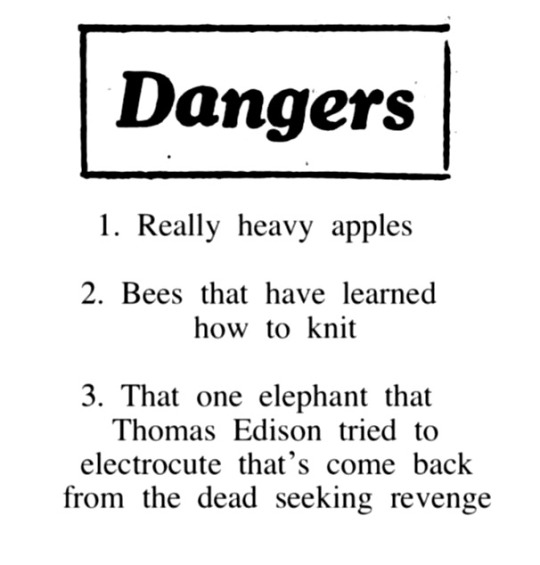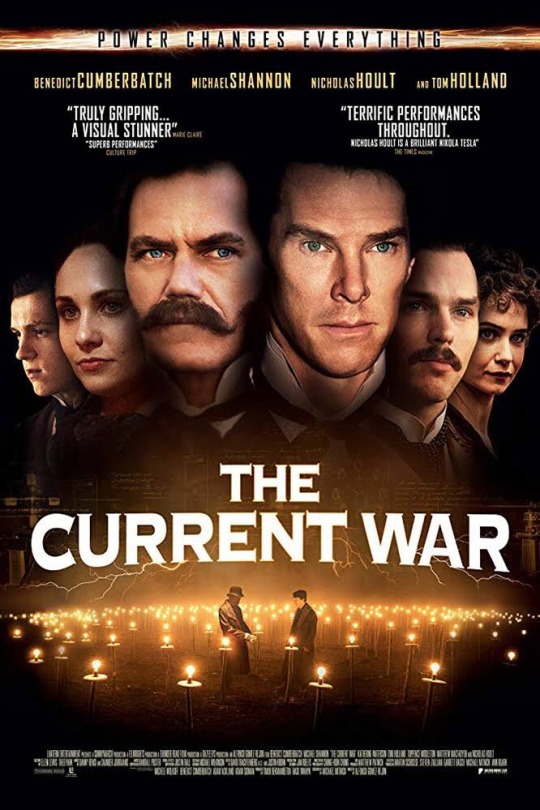#yes yes we know Edison didn’t personally electrocute the elephant
Text

#Dangers#unreality#yes yes we know Edison didn’t personally electrocute the elephant#but still come on
302 notes
·
View notes
Text
The Current War

Odeon Trafford Centre.
Wednesday 31 July 2019
Thomas Edison was a very prolific inventor indeed. He invented the gramophone, film and the electric lightbulb amongst others. He didn’t invent the telephone - apparently - but he did invent a microphone that made it useful. His particular brain child was the direct current (DC) method of distributing electricity supplies to homes and businesses.
In the opposite corner we see George Westinghouse. As well as having a road in Trafford Park named after him, his biggest invention had been the air brake for use on the railways. He was attempting to find a way of supplying gas to provide lighting - but happened upon alternating current (AC). He wasn’t really an inventor at all, he got ideas from other people’s work and used them for his own plans.
Technically, that’s as far as I can go. Your correspondent’s skills and knowledge (if he has any!!) do not at all extend to the mysterious worlds of electricity, physics, chemistry, engineering and similar arcane subjects. Before watching this film, he knew of the existence of AC and DC, but virtually nothing else about them. All he learned from the film is that AC is much more powerful and can kill people.
I’m not sure that a detailed knowledge of the different types of electrical current is necessary in order to enjoy the film, but it must surely help, as I was often left wondering: “what on earth are they going on about, it’s just electricity isn’t it?”
Anyway, the film revolves around the prickly character of Thomas Edison, played by Benedict Cumberbatch. He has a bee in his bonnet about Westinghouse and AC, but we never really know why. He spends most of the film trying to bring down Westinghouse but, other than that AC can kill people, it’s hard to figure out why. My guess, for what it’s worth is that Edison disliked Westinghouse because he didn’t think of him as a “proper” inventor. He “pinched” other people’s ideas and put them to practical use, making lots of money in the process. Edison, as he would have you believe, was interested in science only for science’s sake and that making money out of it is anathema. Having said that, he didn’t invent the telephone - see above - but it was his work on someone else’s invention that made it a success.
At this point, I would like to point out a modern parallel. Both Bill Gates of Microsoft and Steve Jobs of Apple are well known for changing the world, but they didn’t invent a single thing between them. Personal computers and computer operating systems were already in production - all Bill Gates did was to add (the already existing) computer mouse, and make it all much simpler and more efficient. Likewise, Steve Jobs might have designed the iPhone, but he didn’t “invent” anything, he just put the parts together and came up with a revolutionary product.
I digress......in the progress of the war, I think that Westinghouse turns out to be the better person. He ties to reach out to Edison in friendship at a number of points, but is rudely rebuffed for no apparent reason. Despite his claims to moral superiority, Edison doesn’t hesitate to electrocute any number of cats, dogs, horses and elephants in his attempt to prove that AC is unsafe. He surreptitiously designs an electric chair for the first execution using one, but it is devilishly said to be “using Westinghouse’s electricity!”
Westinghouse won the day. Not because he was evil, but because his product was manifestly better. Yes, it could kill people, but so could trains if you are foolish enough to walk in front of one. Edison’s opposition to AC is hard to understand. Perhaps it’s because he didn’t think of it first. DC did find its place in the world. Anything powered by a battery uses DC, and where would we be without those devices?? It’s all very well and good, but you wouldn’t want to rely on a battery to power the floodlights at Manchester United football ground!
My main problem with the film is nothing to do with electric currents. It is that it is filmed in the darkness, with very little colour anywhere. It is not actually “black and white”, but may as well be. It tends to subdue the film and make it dry and listless. Considering that Edison invented the electric lightbulb, I think the producer should have used a few more of them in brightening up the generally dark and dingy scenery of the film.
0 notes